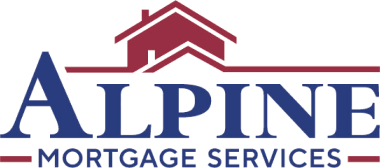Mortgage Rates
Searching for low mortgage rates? At Alpine Mortgage, we're committed to finding you the best rates available. Below are today's purchase and refinance mortgage rates on our conventional, FHA and VA loan programs. Rates are updated daily. For rates on our other loan programs such as investment property loan rates, renovation loan rates, reverse mortgage rates, DSCR loan rates or Non QM loan rates, please reach out to us for a personalized quote. Our goal at Alpine Mortgage is simple: to provide you with the lowest mortgage rates tailored specifically to your needs.
Current Mortgage and Refinance Rates
| Loan Program | Rate | APR | Fees | Action |
|---|
The conventional rates shown are based on a loan amount of $525,000 and a down payment of at least 25%. The FHA rates shown are based on a loan amount of $675,500 and a down payment of at least 3.5%. The VA rates shown are based on a loan amount of $700,000 and no down payment. Mortgage rates are subject to change at any time and are subject to mortgage approval with full documentation of income. All rates shown are for a 30 day rate lock with one discount point on the purchase or rate and term refinance of a single family primary residence with a 740 or higher FICO score.
Best Rate Guarantee
Tired of comparing the fine print to see what’s the difference between the quotes from various lenders? At Alpine Mortgage we help you get the best deal on your mortgage which is why we offer our Best Rate Guarantee. We find the best rate and fees for you based on your goals and find the best pricing through our many loan programs.
You are welcome to shop all other local lenders for a better deal. If you can find one, provide us with that lender's signed and dated lock-in agreement and Loan Estimate on the day the interest rate is locked in and we will beat that lender's interest rate and/or lender fees. At Alpine Mortgage, your satisfaction is our priority. With our Best Rate Guarantee, you can shop for your mortgage with confidence knowing that you are getting the best possible interest rate for your mortgage.
Terms and conditions: Our Best Rate Guarantee applies to our fixed rate conventional, FHA and VA loan programs only and does not apply to any other loan programs. Our Best Rate Guarantee is subject to change or termination at any time without prior notice.
What Our Clients Say
"Alpine got me an amazing rate and made the process so easy!"
– John D, Paramus, NJ
""Buying our vacation home in Tampa was stress free thanks to Alpine. The team was responsive, friendly and got us an amazing rate."
– David L, Tampa, FL
Why Choose Alpine Mortgage?
- ✅ Best Rate Guarantee – We Beat Competitor Rates
- ✅ Fast, Simple Pre-Approval Process
- ✅ Licensed Mortgage Specialists
- ✅ $995 Flat Lender Fee – No Hidden Costs
- ✅ Conventional, FHA, VA and DSCR Loans Available
Start Your Quote Now
Mortgage Programs
Conventional Loans. Among the most popular loan options, conventional loans have specific requirements such as a 620 minimum credit score and a 3% minimum down payment. Interest rates on these loans can differ greatly based on the credit score and down payment. If you are putting less than 20% down, you will also have to pay private mortgage insurance (PMI) which can be paid either upfront at closing or monthly until your equity in the property reaches at least 20%. These loans can be used to finance a primary residence, vacation property or an investment property.
FHA Loans. If your credit history makes it difficult to secure a conventional loan, a FHA loan may be a good option. A FHA loan is a loan that is insured against default by the Federal Housing Administration (FHA). The minimum down payment on a FHA loan is 3.5% with a minimum credit score of at least 580. For borrowers with a credit score as low as 500, it is still possible to get a FHA loan with a larger down payment of at least 10%. Regardless of the amount of your down payment, FHA loans require the payment of mortgage insurance premiums (MIP). FHA loans are available only on a primary residence.
VA Loans. Backed by the Department of Veteran Affairs, VA loans offer veterans and their families with home loans with no down payment required. VA loans do not have any mortgage insurance but may have a funding fee that is collected at closing. VA loans are only available on a primary residence.
Non QM Loans. For borrowers that can't qualify for a conventional, FHA or VA loan because of credit issues or income documentation requirements, we offer several different Non QM loan products. For investment properties, we offer our DSCR loan program where qualification is based on the cash flow of the investment property. Our Non QM provides flexibility in lending standards for individuals with unique financial circumstances or credit issues such as a recent bankruptcy or foreclosure. These loans can be used to finance a primary residence, vacation property or an investment property.
Reverse Mortgage Loans. For homeowners that are 62 years or older, a reverse mortgage allows you to access the equity in your home by either receiving a lump sum, fixed monthly payments or a line of credit. Reverse mortgages are only available on a primary residence.
| Loan Type | Min. Credit Score | Min. Down Payment |
|---|---|---|
| Conventional | 620 | 3.0% |
| FHA | 580 | 3.5% |
| FHA Low Score | 500 | 10% |
| VA | 620 | None |
| Non-QM | 500 | 20% |
30 Year Fixed and 15 Year Fixed Mortgage Rates
30 year fixed and 15 year fixed mortgages are popular choices. A 30 year fixed mortgage is the most popular option. The biggest advantage of a 30 year term is lower monthly payments compared to shorter term loans which can make homeownership more accessible especially for first time buyers or those with other significant expenses. Understanding the estimated monthly payment for a 30 year fixed mortgage can help homeowners manage their cash flow more effectively, providing a clearer picture of their financial obligations. This is particularly beneficial for budgeting and long term financial planning as it allows for a more predictable expense over the duration of the loan. 15 year fixed loans offer lower interest rates for borrowers that can afford the higher mortgage payment due to the shorter amortization period. We offer 30 year fixed and 15 year fixed loan options on our conventional, FHA, VA and Non QM loan programs.
Choosing between a 30 Year Fixed and a 15 Year Fixed
- Financial Stability and Cash Flow. If you prefer lower monthly payments for better cash flow management, a 30 year mortgage might be the better choice. It allows more flexibility in budgeting and provides the opportunity to invest surplus funds in other ventures that may offer higher returns.
- Total Cost and Interest. If you can afford higher monthly payments without undue financial strain, a 15 year mortgage will save you money in the long run due to lower interest rates and less total interest paid.
- Equity Building. A 15 year mortgage helps build equity faster which is beneficial if you plan to sell the home after a few years or leverage the equity for other financial needs.

Real Estate & Mortgage Update
Market Conditions. The national real estate market shows a mixed picture with inventory levels rising slightly but still lower than historical averages. Prices in sought after areas continue to grow at a slower pace than the peaks of 2020 and 2021 while other regions see price stabilization or slight declines. Housing affordability remains a critical issue, particularly in metropolitan areas where prices have not adjusted significantly downward in response to higher mortgage rates. In contrast, more affordable regions are seeing increased interest as buyers seek value in less traditionally popular markets.
Mortgage Rate Trends. Following a period of historic lows, mortgage rates have risen significantly in the past year. This uptick is largely due to the Federal Reserve's efforts to curb inflation through rate hikes which have subsequently influenced borrowing costs. Higher mortgage rates have cooled some of the frenzied buyer activity observed in previous years, leading to a more balanced market in several regions. The increased cost of borrowing is prompting potential homebuyers to re-evaluate their purchasing plans, with some opting to wait for a dip in rates. However, despite these challenges, demand in high growth areas remains robust, supported by strong job markets and continued migration trends.
Mortgage Rate Outlook. Experts predict that mortgage rates may stabilize towards the latter half of 2025, depending on economic indicators and Federal Reserve policies. Potential homebuyers are advised to stay informed on rate trends and market conditions, and consider locking in rates where possible to mitigate the risk of future increases. For more information, see our Mortgage Rate Forecast for expert predictions on where rates are headed.
Mortgage Rates FAQs
Lower mortgage rates generally make buying a home more affordable, as they reduce the monthly payment and total interest paid over the life of the loan. Conversely, higher rates can limit buying power and slow down the real estate market.
Mortgage rates can change daily based on movements in the broader financial markets. They are particularly sensitive to changes in the bond market as well as shifts in economic policy and inflation expectations.
The mortgage interest rate is the cost you will pay each year to borrow the money, expressed as a percentage rate. The Annual Percentage Rate (APR), on the other hand, includes the interest rate plus other loan related charges such as origination fees or discount points expressed as a percentage rate.
There are several government-backed home loan options available nationally, including FHA loans (which have lower down payment requirements), VA loans (available to veterans and active military), and USDA loans (for rural property buyers).
The U.S. real estate market varies dramatically by region. Factors such as local economic conditions, employment rates, and local laws (such as property taxes and zoning regulations) can have significant impacts on market conditions and property values.
Buying a house when mortgage rates are high can be less cost-effective due to increased monthly payments and total interest costs. However, if home prices are rising, and you plan to stay in the house long-term, the investment could still be worthwhile. Consider your financial stability, compare renting versus buying costs, and think about potential home value appreciation. You could face higher home process or miss out on your dream home if you are waiting for rates to go down.
Mortgage Rates Resources
How Can We Help You Today?
What are your goals? We are committed to helping you achieve them.
Get a Quick Quote
"*" indicates required fields
